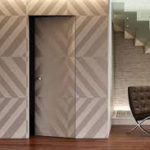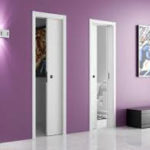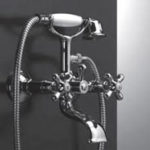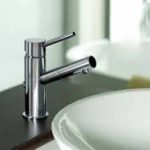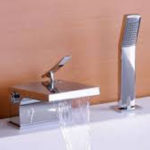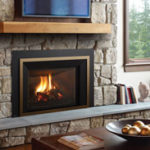Here are some ways an investment in AI might see your bottom line become a little healthier. Priceline, a unit of Booking, just revealed a new partnership with Google Cloud. The generative AI tools from Google will allow prospective travelers to communicate with a chatbot in a conversational way when making plans and receive personalized hotel bookings. ChatGPT can assist guests with making reservations for hotel rooms, dining options, and other amenities.
What is an example of a chatbot in the hospitality industry?
HiJiffy. HiJiffy is an AI-powered solution that helps hoteliers connect with their guests and drive revenue. Part of this is a hotel chatbot which operates as a booking assistant and virtual concierge, automating many of the initial interactions that a guest may have with your hotel.
For example, from the hotel room through a QR code – to a request form for a table reservation or wake-up call in the chatbot. It can be said that the use of chatbots in the hospitality industry is still evolving. However, it currently covers a wide range of hotel services such as bookings, customer service inquiries, pre or post-stay inquiries, and general travel advice.
Seamlessly transferring to a human agent.
I love the citizenM brand and have stayed at many of their hotels, but I dislike checking into a hotel on a kiosk. There’s something about being welcomed to the hotel by another person that gives me a sense of arrival. The question becomes how do you use all of the AI-powered tools available and that are coming out – from RPA to ChatGPT – to drive a better customer journey and a better employee experience. This guide builds on my guide to hotel automation and is focused on hotel operators, though I hope other industry participants will find it useful as well. 1 million restaurant and hotel workers quit in November 2021, according to Business Insider.
For such tasks we specifically recommend hotels deploy WhatsApp chatbots since 2 billion people actively use WhatsApp, and firms increase the chance of notification getting seen. Because a chatbot interacts with guests at most (if not all) stages of their stay, you’re able to gather valuable information which can later be used to automate personalised services for current or future stays. This enhanced personalisation also goes a long way towards building brand loyalty. Because the messaging system is managed by AI, chatbots are there for guests 24/7. This promptness can help make them feel special and greatly enhances brand loyalty.
Price Comparison in the Chat
ChatGPT is expected to significantly enhance chatbots by better understanding customer intent, even for complex requests, and generating more natural and human-like responses. The most popular use of Generative AI and ChatGPT in the hospitality industry is through the use of chatbots. At the most basic level, a chatbot is a computer program that simulates and processes human conversation (either written or spoken), allowing humans to interact with digital devices as if they were communicating with a real person. Through chatbots, hotels get to automate common customer service channels–their website, social media accounts, and even phone operations. While ChatGPT is better known for generating various marketing content, GPT-3’s language model can go beyond writing marketing copies. GPT-3 has achieved a major milestone that no AI had been able to achieve to this extent before–creating human-like texts based on simple instructions.
How Kainene von Savant, an AI bot helped me in the past month – TechCabal
How Kainene von Savant, an AI bot helped me in the past month.
Posted: Tue, 23 May 2023 07:00:00 GMT [source]
For example, if a traveler is planning a trip to a new city and wants to explore its local culture, the chatbot could recommend a variety of activities such as guided city tours, local food experiences, and visits to cultural landmarks. A Generative AI Chatbot could also take into account the traveler’s budget, time constraints, and other preferences to ensure that metadialog.com the suggested activities are feasible and enjoyable. This Generative AI integration through our collaboration with Microsoft involves simple visual cues and voice commands in native Indian languages that will alter the landscape of travel bookings hereon forth. What AI technology does your hotel use to enhance the guest journey and improve the employee experience?
How Does a Hotel Chatbot Work?
ChatGPT is a type of technology that enables computer programs to have conversations with people, just like a human would. It uses natural language processing (NLP) to understand and answer questions and can give advice, tell stories, and generate creative ideas through conversation. If the hotel bot fails to answer any of your looker’s questions, then it collects those questions along with the details of the guests and passes them to your hotel staff. Chatbots are capable of attending to thousands of visitor inquiries and questions all at once.
- And while some of your staff may be multi-lingual, more than likely that’s not going to cover all of your bases.
- Besides, they were searching for a way to address commonly asked questions.
- Hotel staff receives the precise order in the first attempt without even refining it, which ensures smoother, faster customer service.
- O’Flaherty is a 20-year vet of the hospitality industry and says he still looks outside the industry for inspiration.
- Consequently, the resort wanted to increase the efficacy of its engagement on Messenger in addressing users’ queries as well as driving awareness to its shopping and dining offerings.
- Chatbots are capable of sending your previous guests feedback forms along with some incentives for filling them out.
Hotels may give their customers these choices in an interesting and practical way by utilizing a conversational AI bot, then feel free to contact with Botsify team for one of the best AI chatbots for hotel and get a free trial. Hotels can offer extra services to their customers and boost their earnings through upselling. AI chatbots might be built to identify and comprehend when visitors require more than a straightforward service or item. For instance, the chatbot can suggest a suite or upgraded room with more facilities when guests are looking for a room. The customer can then follow the chatbot’s instructions to book an upgraded room. Without incurring major development expenditures, the bot may be readily set and upgraded as required.
AI-Powered Chatbot For Hotels
DuveAI generates custom content for hosts and hoteliers to include either as part of their Guest App or for their upselling platform. With DuveAI, hosts and hoteliers have the power to create content that is in-line with their brand tone, image and specific to their guest personas. Content can be generated for anything from in-house recommendations to add-on services to local tips to travel itineraries and more. DuveAI allows hoteliers and hosts to streamline the content creation process while delivering personalized, high-quality content to their guests.
Visitors could use the chatbot to find out their eligibility for various citizenship programs, find programs based on the location chosen, as well as access information like which forms to fill for different Visa Applications. Recruitbot features a friendly UI that engages candidates and a screening process that automatically qualifies candidates for the next process. It is also capable of accepting candidates’ resumes for further screening and it allows candidates to record and send an intro video. Moreover, it answers any questions that the candidate might have for the recruiters.
How will ChatGPT and Generative AI impact hospitality?
Another reported issue with Alexa is that it has on occasion unexpectedly woken up guests in the middle of the night. Obviously you don’t want the device to negatively impact the guests stay in any way. It is, of course, possible to deploy chatbots that are completely private by deploying them on-prem or on a private cloud. This often involves waiting for a receptionist to become free before providing them with ID and credit cards and signing forms. In the following example, ChatGPT provides instant tips on how to generate more reviews on TripAdvisor for luxury hotels. While the generated ideas still need to be contextualized based on the hotel’s target market and overall demographic, they provide useful ideas to hotel managers.

We are experts at combining strategy and tactical execution in a way that doesn’t just maximize a company’s potential; it redefines it. We incorporate a holistic blend of paid, earned and owned media, along with creative services, into an integrated communications strategy to drive brand awareness ahead of competitors and deliver impactful business results. We have seen a few use cases that would help make the guest experience better, but can chatbots help staff? A voice interface could help receptionist and even staff that are mobile on the hotel premises, to get important information quickly.
Personalizing guest experiences with AI
Below, you will find 10 reasons chatbots have become a key part of many hotel management strategies. This chatbot can be operated using labeled on-screen action buttons, with the user clicking the buttons to progress the conversation. However, more advanced chatbots operate by detecting specific words within what a user types, before displaying the next relevant message, based on the established rules. A rule-based chatbot will work from conversation flows that you provide to it, asking and answering queries from a set of instructions. Save your Hotel Staff TimeTime is one of the most valuable assets a manager has. Having STAN will save your managers time by providing them with the resources to handle their busy work by responding to inquiries from guests.
Chatbots for hotel bookings can offer a more personal experience than the traditional booking process. These chatbots mimic the natural experience of speaking to a travel agent rather than clicking on a screen. First, a customer needs to send a message detailing their destination and stay dates. The bot will then find the best options and suggest them to the customer directly through the messaging app.
Book a slot with a Tars expert to see how chatbots can increase your conversion rate by 50%
Like MARA AI and DialogShift, VoicePlug uses Generative AI to deliver a natural chat experience. This way, hotel-based restaurants can upsell their products and create dynamic menus without losing the human touch that’s vital for the hospitality industry. The main advantages of MARA’s AI Review Reply Assistant over ChatGPT for generating review responses is that it follows best practices and produces factually correct responses. On the other hand, ChatGPT can sometimes generate responses that do not adhere to best practices or contain inaccuracies. This may lead to suggestions that require manual rewriting, making the process more time-consuming. You can think of MARAs AI review reply assistant as a technology similar to ChatGPT, but specialized in crafting perfect responses to hotel reviews by following best practices on how to respond to guest feedback.
- Ochatbot is an AI-powered chatbot that helps you build a hospitality chatbot to facilitate the user with their questions and bookings.
- Through content, Dean aims to provide education, inspiration, assistance, and, ultimately, value for small accommodation businesses looking to improve the way they run their operations (and live their life).
- “Our TripAdvisor ranking improved 6 places in 3 weeks — now we are in top 10.
- This way, hotel-based restaurants can upsell their products and create dynamic menus without losing the human touch that’s vital for the hospitality industry.
- Тhe growing digital-first habits and the constant acceleration of everyday life brought customers to the “see, hear, try and buy right now and here“ mode.
- However, it is still unfamiliar to many hotel owners, and the process of adopting chatbot technology can seem daunting, especially given the abundance of chatbot products available.
What is chatbot in hotel industry?
A hotel chatbot is a form of digital technology that can respond intelligently to human interactions and be deployed on behalf of a hotel, or any other business in the hotel industry.










































